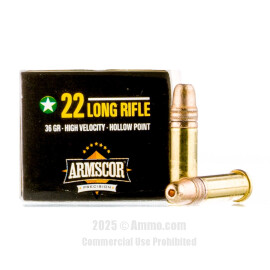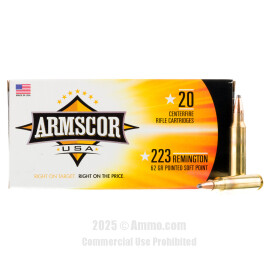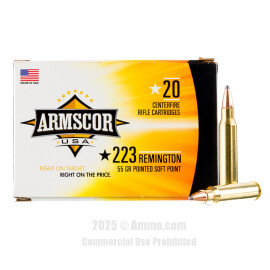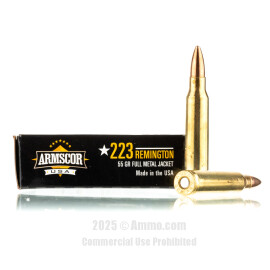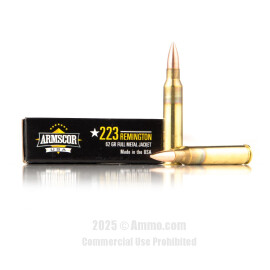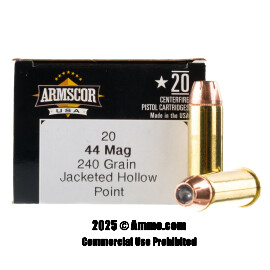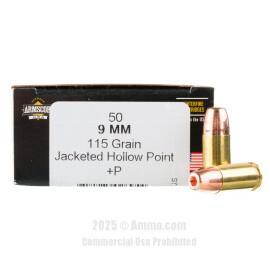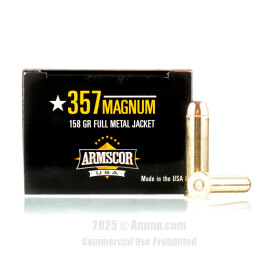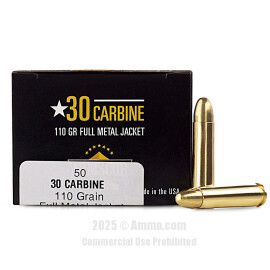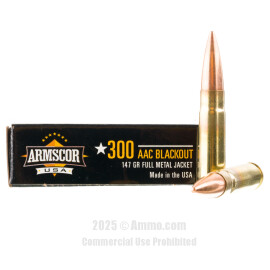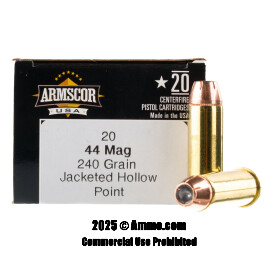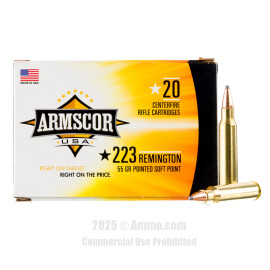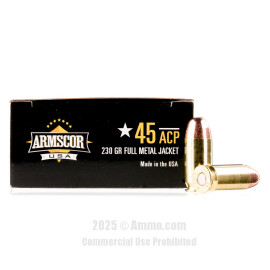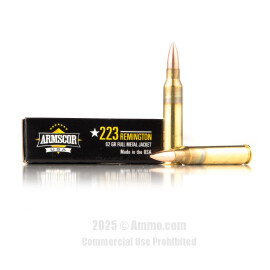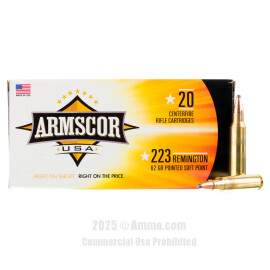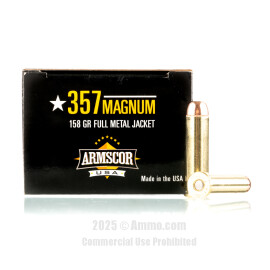
Armscor Ammo For Sale
Overview of Armscor Ammo
With its roots dating all the way back to 1905, Armscor is a firearms manufacturing company based out of the Philippines. They started as Squires Bingham & Co., and are now a global firearms producer, exporting to more than 50 countries on six continents. They’re known for their inexpensive 1911-pattern pistols, revolvers, shotguns, rifles, parts, and ammunition.
Manufacturing and Global Reach
Armscor operates its primary manufacturing facility in Marikina City, Philippines, producing over 200,000 firearms and 420 million rounds of ammunition annually. The company has strengthened its presence in the United States through its acquisition of Rock Island Armory and additional facilities in Nevada and Montana. Armscor continues to innovate while maintaining its commitment to quality and affordability.
Armscor and the Philippine Military
Armscor plays a vital role in supporting the Armed Forces of the Philippines. The company serves as an affiliate reserve unit for the military and supplies arms for national defense. Armscor’s contributions align with the government’s efforts to address insurgencies and national security challenges.
Innovative Products
Armscor is well-regarded for its innovative products, including the .22 TCM cartridge, a high-velocity, low-recoil round known for its accuracy. The company remains committed to delivering reliable and accessible self-defense tools for shooters worldwide.
Customer Reviews
-
red-one said:
I have shot 4000 rounds thru Ruger 10/22, Ruger MK IV, Smith & Wesson auto pistol, M&P, 3 different 1911 22 pistols all automatic only had 3 fail to fire and 2 fail to feed total. I had no issues with running complete mags fast or slow fire drills. But like all 22 ammo, was a little dirty after the first 500 rds, but did not seem to affect the performance. For the price very dependable.
-
Gary said:
First 5000 I bought were of,poor quality. !3 out of 50 failure to fire in four different weapons. Sent back to factory, received 5000 replacements. Have fired 3000 +-throught a Marlin 60, Ruger 10/22. Browning Buckmark, Stevens 87H. One failure to fire. Cleanliness was as expected. Dontb think there is any .22 rimfire ammo that is really "clean".
-
Christopher said:
I got these thinking it was going to be great for my new Ruger 10/22 backed on reviews. However I was hugely disappointed. Ever round got hung up feeding one way or another. The only time it would successfully rack a round is when the bolt had enough force to shear off a part of the lead tip leaving large chunks behind. Out of 100 rounds used so far (of the 1000 bought :( I could not go though a full factory 10rd magazine without multiple failure to feeds. Would not recommend.. will not buy again.
-
David said:
Others that I have used tend to get hung up when ejecting. Every time I use these rounds they all eject perfectly.
-
Thomas L said:
First off, I cannot say enough nice things about the service given to me by ammo.com and I intend on buying as much ammo as I need from this seller. As far as the ammo itself goes, I fired all 500 rounds divided between 4 auto-loaders, 3 lever action and 3 bolt action rifles, all scoped and all from 105 measured yards at a range. I am very impressed with how clean this ammo shoots. I am a clean freak where firearms are concerned and it takes some doing to impress me where cleanliness is concerned on .22 ammo. As far as accuracy goes, for measured groups, I fired 4, 5 shot groups with each rifle. The average measurement of the bolt action rifles was 5/16 of an inch. The lever actions averaged 7/16 of an inch and the auto-loaders averaged 3/4 of an inch. I never had a single misfire out of the 500. I fired the ammo in 2 Henry and 1 Marlin lever action rifles. I fired the ammo in a 1937 Mossberg model 46A, a 1946 model Remington 510 Target Master and a 2013 Ruger model 77/22 - all 3 bolt guns. I fired the ammo in 2 Ruger 10/22 auto-loaders, 1 Marlin model 60 auto-loader and 1 Remington Nylon 66. Here is where my only complaint with this ammo lies. The ammo does not produce enough chamber pressure to cycle the bolts on these semi-auto rifles. They either stovepipe or fail to force the bolt back far enough to cycle the next round into the chamber. Again, I am a clean freak with my firearms and I remove the bolts and clean the entire receiver after each range/hunting session. I cannot say what the ammo will do in a semi-auto pistol as it has been nearly 20 years since I owned one and it was not worth my time to drive 50 miles to borrow a Buckmark from a friend.
-
Jason said:
Target Shooting Perfect
-
Lee said:
I have shot 100 out of the 500 rounds bought with not one failure! I will be buying again.
-
Lee said:
I have shot 100 out of the 500 rounds bought with not one failure! I will be buying again.
-
KEN said:
GOOD QUALITY AMMO, CAN'T BEAT THE PRICE ON THIS STILL HARD TO FIND .22 LR. DEFINITELY WOULD BUY AGAIN
-
EP said:
Very happy with the ammo. My son ran probably 100 rounds through his Ruger 10/22 with out any jams. Had a problem in the past with the (big box store) ammo jamming up when using the large after market mags. Fast delivery as well. We'll be repeat customers for sure.
-
geno said:
great ammo, super service, I'll be back
-
BILLYTHEKID said:
like all the ammo
-
Mike said:
Great value. Great performance.
-
Randall11 said:
Have shot a few hundred rounds not a single misfire. Shipping was quick too.
-
murphy said:
The best price by far on the web & beats the local stores. I was pleased by how fast my order arrived! I liked the donations the store offers & wished more offered it. I'll order more ammo when ya'll get more in. Very glad I found this site. Thank you. Lee
-
Chris said:
A very good practice round for my Colt Delta Elite 10MM at a reasonable price.
-
Blondie said:
Easier to shoot than my .45 colt. More precise SW 500 ammo. I can't tell the difference between 300 grain and 500 grain. Both accurate and not much change in recoil. Want recoil?!! Don't shoot a bear load unless your wrists are tough.
-
Butch said:
good ammo
-
sailormanNH said:
I've shot approx 2,000 rounds no failures. Good cheap rang ammo a little dirty not excessive.
-
Frank said:
I have owned my M-1 Carbine since the early 90's, fired it many, many times & I have NEVER had any feeding issues, reloading issues or jams. I bought this ARMSCOR 30 Carbine.The quality seemed good, the price was great but, shooting a Ten round magazine I would have upwards of Three to Four jams, almost every time. The final solution was to lube the heck out of the bore & a little on the tips of the rounds themselves; then the amount of jams decreased to One or Two jams per TWO Ten round clips. All in all I am very pleased with the quality & the price. I recommend this product for its value alone.
-
spike said:
Great ammo no problems shoot
-
Chief said:
Performed well. Lots of rounds and no issues!!
